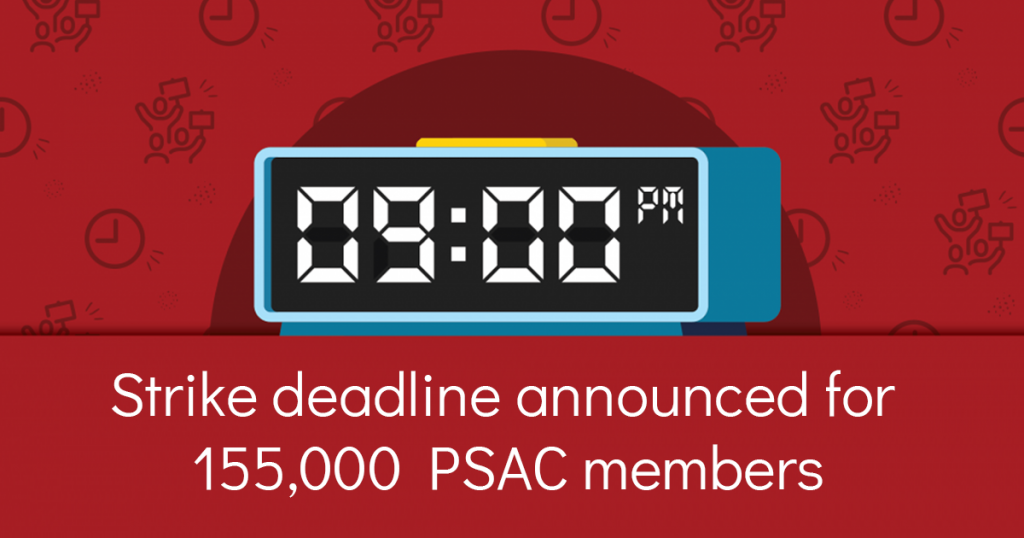
April 17, 2023
More than 155,000 PSAC members working for Treasury Board and the Canada Revenue Agency will begin strike action on April 19 if a deal cannot be reached by 9 p.m. ET April 18 – setting the stage for one of the largest strikes in Canada’s history.
“We’ve made some progress at each of our four bargaining tables over the past two weeks, but we’re still too far apart on several key issues, including wages that keep up with the cost of living, job security and remote work language,” said Chris Aylward, PSAC National President.
“We’re committed to remaining at the table until a fair deal is reached for all our members – both for our 35,000 Canada Revenue Agency members who resume negotiations today, and our 120,000 Treasury Board members still at the table.”
PSAC members have been without a contract since negotiations with the federal government began in June 2021, and last week, voted overwhelmingly in favour of taking strike action.
“These workers – like all workers – deserve fair wages and decent working conditions. Despite some progress at the bargaining table, our members are frustrated that while negotiations drag on, they continue to fall behind,” said Aylward.
“We’ve already been at the table for nearly two years, and these workers can’t wait any longer. That’s why we’re setting a clock on this round of bargaining.”
With so many federal public service workers potentially on strike as of April 19, Canadians can expect to see slowdowns or a complete shutdown of services nationwide, including a complete halt of the tax season, disruptions to employment insurance, immigration and passport applications; interruptions to supply chains and international trade at ports, harbours, and airports; and slowdowns at the border with administrative staff on strike.








